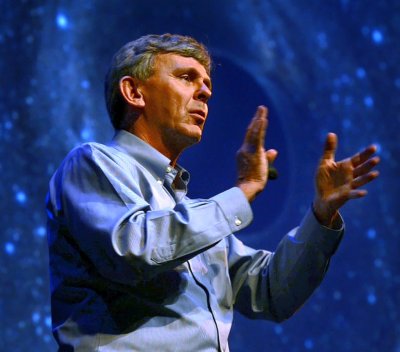Recent Colloquium
Colloquium # 281
LIGO, Virgo, and Gravitational Waves: A Revolution in Physics and Astronomy
By Prof. David Reitze
Executive Director, LIGO Laboratory
California Institute of Technology, USA
Thursday, Jan 11th 2018 at 3:30 PM
Seminar Hall

Abstract
We are witnessing a revolution in physics and astronomy brought about by the first direct detections of gravitational waves by LIGO and Virgo. Ten years ago many wondered when or even if gravitational waves could be detected on earth; today observations of binary black hole mergers detected through their gravitational wave emissions are becoming routine. The first observation of two colliding neutron stars in August 2017, captured both in gravitational waves and in light, has given us new insights into gamma ray bursts, kilonovae, the formation of heavy elements, and even gravity itself.
Gravitational waves provide unique information about the most energetic astrophysical events, revealing insights into the nature of gravity, matter, space, and time. In this talk, I’ll cover gravitational waves and what makes them so difficult to detect and at the same time such powerful and unique probes of the universe. Most of the presentation will focus on the interferometers, the LIGO-Virgo detections and their astrophysical implications. Time permitting, I’ll give a preview of where LIGO intends to go in the next decade and beyond.
About the speakers
David Reitze is the executive director of the LIGO Laboratory, a research professor of physics at Caltech,and a professor of physics at the University of Florida who has worked in gravitational wave science for more than 20 years. He has authored more than 280 publications. Reitze is a Fellow of the American Physical Society and the Optical Society, and a member of the LIGO Scientific Collaboration (LSC) that was awarded the 2016 Special Breakthrough Prize in Fundamental Physics, the 2016 Gruber Foundation Cosmology Prize, the 2017 Rossi Prize of the High Energy Astrophysics Division of the American Astronomical Society, and the 2017 Princess of Asturias Award for the first detection of gravitational waves from a binary black hole merger. He served as LSC spokesperson from 2007-2011, and was awarded the 2017 US National Academy of Sciences Award for Scientific Discovery.

